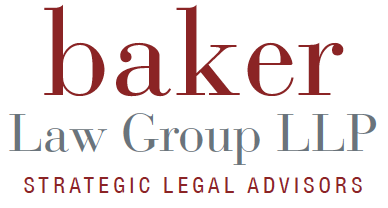Disability Discrimination Lawsuits Do Not Necessarily Result in Termination
One of the most easily misunderstood topics in discrimination law—including disability discrimination and retaliation lawsuits—is what actions actually constitute discrimination. In regards to disability discrimination, the Fair Employment and Housing Act (FEHA) and the Americans with Disabilities Act (ADA) offer two different definitions for discriminatory actions.
Discrimination According to FEHA
FEHA specifically lists actions that would be discriminatory under Government Code Section 12940, subd. (a). It includes all of the following employer actions that may be motivated by an individual’s perceived disability:
- Refusing to hire;
- Refusing to train for a program that would lead to employment;
- Firing from a job or training program that would lead to employment;
- Or discriminating in the terms of employment including compensation, conditions, or privileges.
Discrimination According to ADA
ADA, on the other hand, leaves the definition of “discrimination” open to more interpretation. ADA’s list of discriminatory acts includes the above list, but also includes discrimination in regards to job application procedures and job training. Additionally, Section 12112 of ADA forbids acts based on a job applicant’s disability that limits, segregates, or classifies the job applicant in a way that would “adversely affect the opportunities or status” of the applicant.
 An Example from the California Court of Appeals
An Example from the California Court of Appeals
The California Court of Appeals recently reviewed a case that showed the limits of what an adverse employment action could be under California law. In the case of Jeffrey v. Temple City, 2013 WL 501426, (Feb. 11, 2013) an employee, Randolph Jeffery, brought a disability discrimination claim under FEHA. Jeffrey was a custodian for the Temple City School District who claimed that he was terminated from the school district after receiving a serious injury from a car accident. Jeffrey claimed that he was terminated directly because of the disability he received in the car accident.
However, the School District argued that it did not in fact terminate Jeffery. Rather, they sent Jeffrey a letter saying that he would be placed on a 39-month rehiring list, and that at the end of the 39 months Jeffrey would be rehired. However, Jeffery said that he believed that he was being terminated because the title of the letter he received read: “RE: Termination of Employment.” Ultimately, the court held that getting placed on a rehiring list in this case was not an act of discrimination, because Jeffrey could not prove that he could do his job duties with reasonable accommodation, and being placed on the list was not actually a termination because he was to be rehired at a later date.
The Jeffrey case demonstrates the limits of what a discriminatory action can be, but it also demonstrates the importance of getting legal advice as soon as possible to help you understand the full extent of your rights. If you have been the victim of discrimination contact an experienced attorney right away. Contact the experienced California attorneys of Baker Law Group, LLP today for a FREE Consultation.

